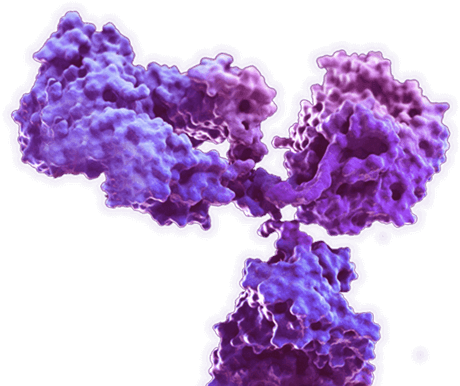AibGenesis™ Mouse Anti-BBS10 Antibody (CBMOAB-36803FYA)
Cat: CBMOAB-36803FYA

Certificate of Analysis Lookup
To download a Certificate of Analysis, please enter a lot number in the search box below. Note: Certificate of Analysis not available for kit components.
Lot Number
To download a Certificate of Analysis, please enter a lot number in the search box below. Note: Certificate of Analysis not available for kit components.
Lot Number
- Product List
- Specifications
- Application Information
- Target
| Sub Cat | Clonality | Species Reactivity | Application | Clone | Conjugate | Size | |
| CBMOAB-36803FYA | Monoclonal | Rhesus (Macaca mulatta), Chimpanzee (Pan troglodytes), Frog (Xenopus laevis), Human, Mouse, Zebrafish, Marmoset, Zebrafish (Danio rerio) | WB, ELISA | MO36803FYA | 100 µg | ||
| CBMOAB-67492FYA | Monoclonal | Zebrafish (Danio rerio) | WB, ELISA | MO67492FYA | 100 µg | ||
| MO-AB-01809H | Monoclonal | Frog (Xenopus laevis) | WB, ELISA | MO01809C | 100 µg | ||
| MO-AB-20332W | Monoclonal | Chimpanzee (Pan troglodytes) | WB, ELISA | MO20332W | 100 µg | ||
| MO-AB-51761W | Monoclonal | Marmoset | WB, ELISA | MO51761W | 100 µg | ||
| MO-MMB-0051 | Polyclonal | Human, Mouse, Zebrafish | WB, IHC, IF | 100 µg |
Specifications
| Host species | Mouse (Mus musculus) |
| Species Reactivity | Rhesus (Macaca mulatta), Chimpanzee (Pan troglodytes), Frog (Xenopus laevis), Human, Mouse, Zebrafish, Marmoset, Zebrafish (Danio rerio) |
| Clone | MO36803FYA |
| Specificity | This antibody binds to Rhesus BBS10. |
| Format | Liquid or Lyophilized |
| Storage | Store at 4°C: short-term (1-2weeks) Store at -20°C: long-term and future use |
| Purity | > 90% was determined by SDS-PAGE |
| Purification | Purified with Protein A or G affinity chromatography |
Application Information
| Application | WB, ELISA |
| Application Notes | ELISA: 1:1000-1:3000 Other applications are to be developed. The optimal dilution should be determined by the end user. |
Target
| Introduction | This gene is a member of the Bardet-Biedl syndrome (BBS) gene family. Bardet-Biedl syndrome is an autosomal recessive disorder characterized by progressive retinal degeneration, obesity, polydactyly, renal malformation and cognitive disability. The proteins encoded by BBS gene family members are structurally diverse and the similar phenotypes exhibited by mutations in BBS gene family members is likely due to their shared roles in cilia formation and function. Many BBS proteins localize to the basal bodies, ciliary axonemes, and pericentriolar regions of cells. BBS proteins may also be involved in intracellular trafficking via microtubule-related transport. The protein encoded by this gene is likely not a ciliary protein but rather has distant sequence homology to type II chaperonins. As a molecular chaperone, this protein may affect the folding or stability of other ciliary or basal body proteins. Inhibition of this protein's expression impairs ciliogenesis in preadipocytes. Mutations in this gene cause Bardet-Biedl syndrome type 10. (From NCBI) |
| Product Overview | Mouse Anti-Rhesus BBS10 Antibody is a mouse antibody against BBS10. It can be used for BBS10 detection in Western Blot, Enzyme-Linked Immunosorbent Assay. |
| Alternative Names | Bardet-Biedl syndrome 10 protein; BBS10 |
| UniProt ID | H9FZV7 |
| Protein Refseq | The length of the protein is 720 amino acids long. The sequence is show below: MLSSMAATGSLKAALQVAEVLEAIVSCCMGPEGRQVLCTKPTGEVLLSRNGGRLLEALHLQHPIARMIVDCVSSHLKKTGDGAKTFIIFLCHLLRGLHAVTDREKDPLMCENIQTHGRHWKNCCQWKFISQALVTFQTQILDGIMDQYLSRHFLSIFSSAKERTLCRSSLELLLEAYFCGRVGRNNHKFISQLMCDYFFKCMTCKTGIDVFELVDDYFVELNVGVTGLPVSDSRIIAGLVLQKDFSVYCPADGDIRMVIVTETIQPLFSTSGSEFILNSEAQFQTSQFWIMEKTKAIMKHLRSQNVKLLLSSVKQPDLVIYYAGVNGISVVECLSSEEVSLIRRIIGLSPFVPPQAFSQCEISNTALVKFCKPLILRSKRYVHLGLIGTCTFIPHCVVLCGPVQGLIEQHEDALHGAFKMLRQLFKDLDLNYMTQTSDQNGTSSLFIYKNSGESYQAPDTGKGSIQRPYQDTVVENKDELEKTQTYLKVHSNLVISDVELETYIPYSTPTDTFETDETLKCLSLERNRLTDDYEPLLKNNSTAYSTRGNNRIDISYENLQVTNITGKGSMLPVSCKLQNMGASQSYLSSSMPAGCVLPVGGNFEILLHYYLLNYAKKCHQSEETMVSMIIANALLGIPRVLYKSKTGKYSFPHIYIRAVHALQTNQPLVSSQTGLESVTGKYQLLTSVLQCLTKILTIDLVITLKRHPQKVHNQDSEDEL. |
For Research Use Only | Not For Clinical Use.
Online Inquiry

